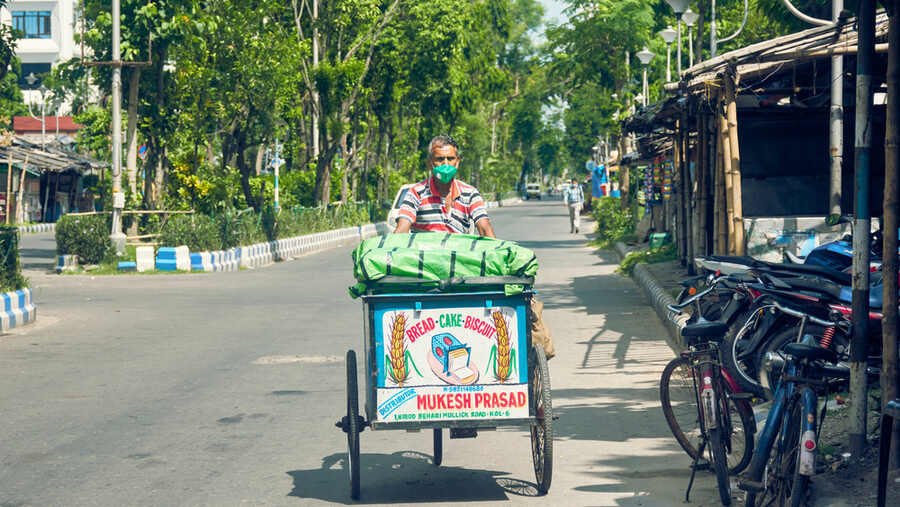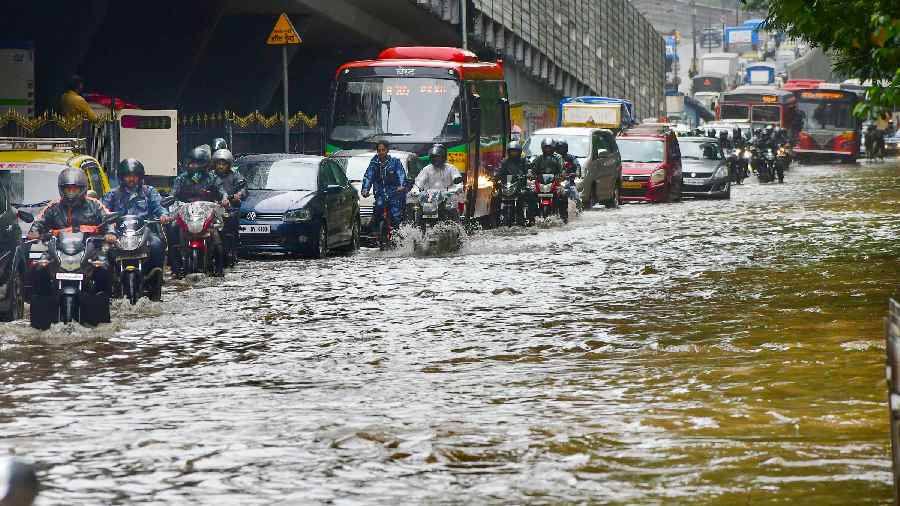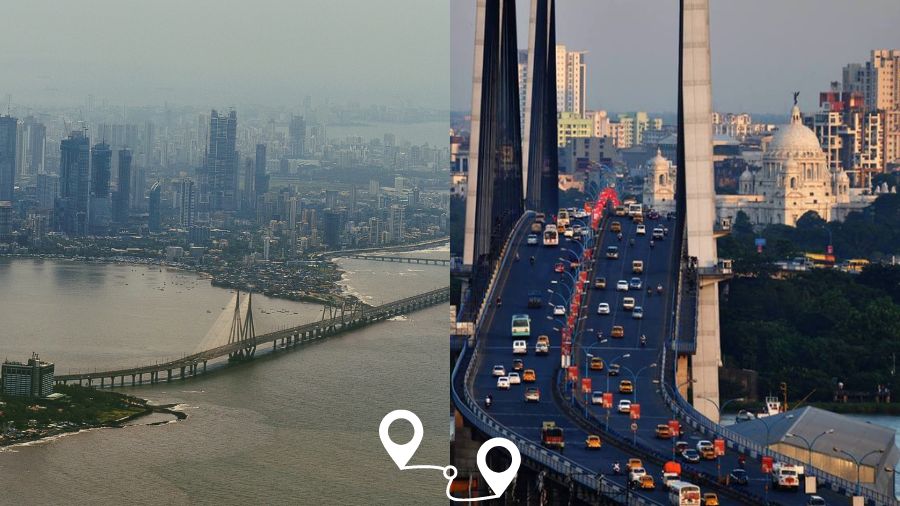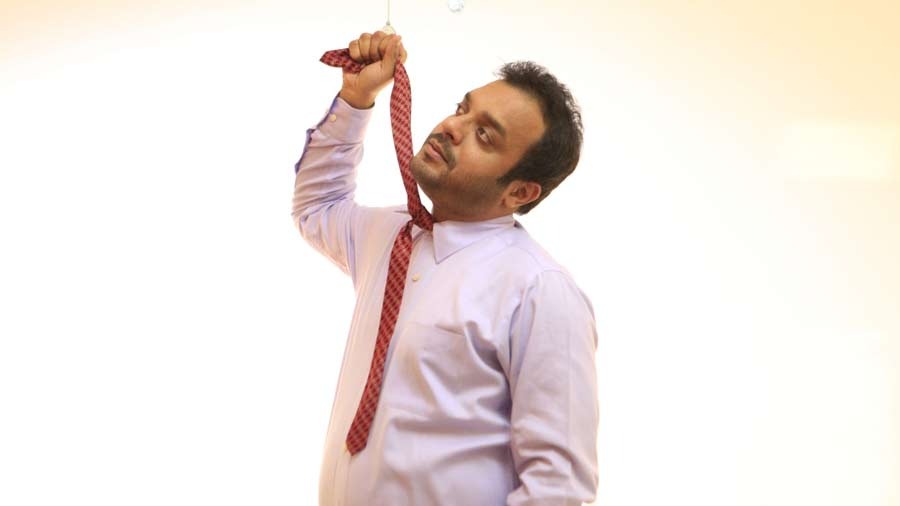Take it from someone who has lived in three cities, the city you live in will always shape you. Making a home in a city is a journey, and I don't mean setting up house. Setting up an abode is easy, creating a home is a little more than that.
The first time I came to live in Kolkata, I was about nine years old. I left at 15, when my father was transferred. We returned more than a decade later on my father’s retirement, and by then, I was inching towards 29. In the years in between, I'd lived in two cities and called one of them home — Mumbai.
Returning to Kolkata was supposed to be a temporary thing just to get the parents settled, before I flew back to a known life in Bombay. But, as is the way of life, plans change. In this case, to a longer temporary stay because I decided to change jobs. And the pandemic hit. And then I found a new relationship with an old love. And then, the stay in Kolkata was not so temporary anymore.
That’s where my journey to make a home in Kolkata began.
Same same but different
Kolkata isn’t an unfamiliar city for me, but for the first time, I wasn’t just a guest. When you’re a visitor, you don’t mind being a bit of an outsider, you also like knowing that things have changed from your last visit. The same spirit of discovery is a little unnerving, and the feeling of being on the outside is a lot jarring when you’re looking to live in a city.
When visiting, we used to live in the heart of south Kolkata. For their retired lives, my parents chose the more up-and-coming areas beyond the southernmost margins of that south Kolkata. For someone who has lived and thrived in the quick and easy way of things in a Bombay suburb, the pace of the Kolkata suburb was the source of many tears, and many a fight fuelled by frustration!
“Why is no Uber ready to take me home?” “Do the cabbies always have to know what my destination is?” “How is there no Swiggy delivery restaurant open post 10.30pm?”
Gladly, ‘upcoming’ also means ‘fast development’ and I now have a go-to midnight Swiggy meal. I have managed to learn the precise way to manoeuvre my parents’ sedan through narrow roads, and life is much better.
Rediscovering the city
Much of the ease was also aided by getting out of the house (pre-pandemic) and rediscovering the city. I saw Kolkata as a child, I discovered it anew as an adult. The joys of ‘traffic’ in a circular city, where the longest distances are half of what I was used to. The fact that you could be a foodie and be happy in pretty much any corner of the city because the options were aplenty. The open spaces that made great winter hangouts. (Oh, winter! The joy of socks!)
Gradually, favourite restaurants were bookmarked, and after careful comparison, some were deemed better. A few shopkeepers were befriended, who would source ‘that spread you wanted, didi!’
Then came the discovery of the quirks. Little things that could only happen in Kolkata! The chaa dokan in my neighbourhood that celebrates Md. Rafi’s birthday by playing his songs all day and garlanding a huge photo of the singer. The shop around the corner that still gets freshly baked bread and biscuits delivered on a cycle, from the nearby bakery, every morning. Two streets away, a new cafe that sells artisanal loaves.

Freshly baked goods delivered by cycle is not a sight common in many big cities, but still happens in the heart of Kolkata Shutterstock
Perhaps the best discovery of them all was that in many ways Kolkata is still discovering new things and is on a journey of its own, which means that there is something new to discover — a homegrown business, a cloud kitchen, an art store — every other day.
Of course, not all discoveries are the cockle-warming kind.
Rain, what rain?
Look, if you've lived in Mumbai, then rain anywhere else (except maybe some parts of the Northeast) will seem like a light shower. It’s a rainy late afternoon in 2019, I have finally managed to convince a cab to take me home and I’m stuck in traffic (not the manageable kind). The radio is playing and the RJ exclaims how it’s pouring in the city! “Oh, my guest has arrived drenched. If you’re stuck, be dry and safe, it’s raining cats and dogs!”
My Mumbaikar soul could only take so much before I had to roll down the window to check if the car was under a very shady tree or something. Let’s just say, I still don’t understand the definition of heavy rain here, because for me ‘pouring cats and dogs’ conjures images of holding my handbag over my head as I wade through thigh-high water to get to my society gate.
But I have now learnt to respect the Kolkata-standard for heavy rain and reined in my expectations.

Every Mumbaikar knows that for at least a few days during the monsoon, they will have to trudge home through water levels higher than ankle-deep TT Archives
It happens only in Kolkata
One of the biggest adjusting factors when moving cities is learning the ways of people and the ways of getting work done. I have discovered two ways of getting work done in Kolkata. Use a familial tone and suffix — “Oh, kaku. Dekhe dao na go.” “Didi ektu taratari hobe?” — because emotions work better here than in many other cities. Or, assert your knowledge and let them know you know what you’re talking about — “Eita kintu paanch minute lage, beshi time niyo na” — because everyone seems to know everything about something. There are no ignorant souls in this city. The ones that are, have the air of the informed, so you’re never sure.
In all fairness, the former is often true. The everyman in Kolkata is generally better informed than in other cities. It could be because they need to be prepared for an impromptu debate at all times. Is it a bit annoying? Sure, oftentimes. But on days you have the time for reflection, it can be endearing and empowering to know that basic education is a matter taken seriously.
It’s probably at this point in this account that I should mention that if you’re used to the fact that a complete stranger will not be interested in your life, you might have to adjust your expectations in Kolkata. It will take some getting used to, and you will also — eventually — realise that the curiosity mostly comes from a good place (and the need to just have a conversation). You will find ways to avoid or embrace it. Pretending to not know the language works sometimes.
(Work) Culture shock
In my previous place of employment (in Mumbai), everyone from editor-in-chief to intern was addressed by their first name. Now, I have at least three people who add a di to my name and at least three others I address with a similar suffix.
Is that a bad thing? No, absolutely not. Did it take a while to get used to the concept? Yes, it absolutely did!
You might not think the following monologue would ever matter in your life, but it did in mine. "If X is Xda, then should Y be Ydi? But I've addressed X as X since day one, though most people say Xda! Y can't be di, sounds weird. Z definitely has to be di, even X calls her di."
A year on, I have more or less identified my dadas and didis and I am not surprised by my own suffix anymore.
Given all the (not so good) things that are said about Kolkata’s work culture, I suppose I’ve been lucky; that's the only major dilemma I’ve had to deal with. There are mellow and strong personalities, some with strong city-influenced hues. The language of communication features a lot more of my mother tongue, as does the ranting, and the way to get work done by people outside your team varies (see above point) — otherwise not much has changed. I still work with wonderful (and sometimes nutty) people who are adequately interested in each other’s lives.
Vocabulary lessons
Given my childhood spent in Kolkata, I have always been more Bengali than a Probashi Bangali, yet not Bangali enough for a Kolkata Bangali. It also reflects in my vocabulary and my instinctive choice of language of communication.
Now, what you have to know is that this eastern Indian metro is still not as cosmopolitan as some others, definitely not as much as my first home. So Bengali is most often the first choice of language for people in all sectors, unofficial and official. Knowing the language has helped a lot, and in the last few years my first choices have gone from English and Hindi to English and Bangla — there are some ways to go, but progress has been made.
I recently met an old friend from Bombay, and one of his first remarks (after I cursed out loud in Bengali) was, “you sound so much more Bengali now! Matlab, kya ho gaya?” And instead of my usual reply of “kuch bhi!” I ended up saying “ki jata!”. I suppose his pointed look was warranted.
Three years, four months and almost three weeks later, what I can say is somewhere along the journey from “kuch bhi” to “ki jata” and “abey yaar!” to “dhur shala!”... Kolkata is becoming home.


